Iran Says It Received Message About Nuclear Talks Through Qatar
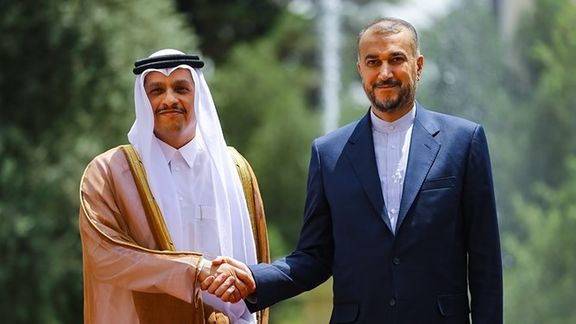
Iran’s foreign minister claims Tehran has received messages through Qatar from world powers that are party to the 2015 nuclear deal known as the JCPOA.

Iran’s foreign minister claims Tehran has received messages through Qatar from world powers that are party to the 2015 nuclear deal known as the JCPOA.
Hossein Amir-Abdollahian, who was speaking at a joint press conference with his Qatari counterpart Mohammed bin Abdulrahman bin Jassim Al Thani on Sunday in Tehran, did not provide further details, but the Qatari top diplomat said that the message was from the US.
“Qatar has been always passing on messages about the return of the JCPOA parties to their commitments. Today, we received JCPOA-related messages from the Qatari side,” Amir-Abdollahian stated, referring to the 2015 nuclear deal, known as the Joint Comprehensive Plan of Action.
Meanwhile, the Iranian news agencies quoted the Qatari official as saying that "the Americans gave us a message to convey to Iran, which is related to the issue of the agreement, although it may not be directly related to it."
Qatari foreign minister also urged all parties to return to the agreement.
Talks to revive the JCPOA reached a deadlock last September after 18 months of negotiations.
These statements come as US officials have repeatedly stated that their focus is not on the JCPOA negotiations any longer, but Washington is rather focused on the Islamic Republic’s suppression of its people and Tehran’s military support for Russia in the invasion of Ukraine.
The European parties to the JCPOA have also expressed a similar view, with Germany saying that "Berlin's main focus is on supporting the protest movement in Iran."

Former commander of Israel’s navy Eliezer Marom has said that Iran is on the threshold of obtaining nuclear weapons and it is better to attack “now than later.”
Speaking to i24News on Thursday, Marom was asked when the right time is to attack Iran’s nuclear installations.
"In my understanding, I think Israel has to attack, because the situation right now is that Iran is a threshold country - 100 percent," he replied.
The former vie-admiral said that although Iran is currently enriching uranium to 60 percent, it can quickly increase enrichment to above 90 percent, which is necessary for a nuclear bomb. He added, “the moment to jump from threshold to holding nuclear weapons will be very, very short… and therefore I think the time to attack… the clock is ticking, and we will have to do it sooner rather than later, sooner it means in the upcoming year."
Negotiation to re-establish limitations on Iran’s nuclear program are in limbo and Tehran has gone beyond the previous limit on enrichment that existed under the 2015 nuclear deal known as the JCPOA.
Israeli leaders have been warning that they will resort to a military attack to prevent Iran from obtaining a nuclear bomb, although experts believe that would be a difficult task if Israel tries to do it alone.
The United States conducted large-scale military drills with Israel this week, with some saying that the exercise was meant to be a message to the Islamic Republic.
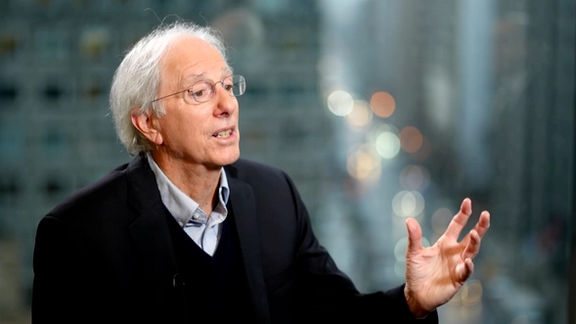
An American foreign policy aide in successive US administrations told Iran International that the only way the US would remove sanctions on Tehran is a whole new deal.
In a face-to-face with our correspondent Arash Alaei, Dennis Ross said that the Islamic Republic has lost its chance to revive the 2015 nuclear deal with making extra demands, noting that now the only move that may kickstart the talks is a halt in Tehran’s uranium enrichment to over five-percent purity.
Iran should not be enriching to 60 percent or even 20 percent, he said, adding that the Islamic Republic is crossing thresholds that may push the Biden administration to a path that it would not like to pursue, he said. The Biden administration might say “what was on the table is no longer on the table. You had a chance to do the JCPOA and you chose to try to get more,” he added.
He said that the administration sought a longer and stronger deal since the beginning, speculating that if they want to agree on a deal, it will not be going back to the JCPOA. “The deal has to apply for much longer; it has to be stronger, then there would be readiness to talk about a deal,” he said, foreseeing that Washington would ask Tehran to give up more if it wants to potentially get more.
Ross was the director of policy planning in the State Department under President George H. W. Bush, the special Middle East coordinator under President Bill Clinton, and a special adviser for the Persian Gulf and Southwest Asia -- which includes Iran -- to the former Secretary of State Hillary Clinton.
Referring to the recent round of Western sanctions on the Islamic Republic officials, Ross said that this is a message to Tehran that “we are collectively hardening our approach because of the behavior of the Iranian regime.” He added that slapping the Revolutionary Guard with the terrorism label by the Europeans has never been really considered. Ross mentioned the coordination among the US and its allies to close the loopholes so that Iran cannot sell its oil as another measure that showed the world is standing against the regime.
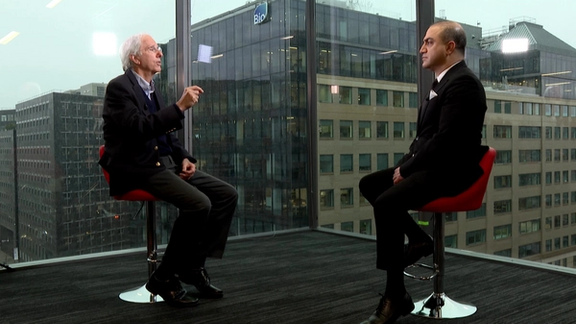
All of these indicate that “the Islamic Regime needs to understand that life is going to become more difficult for them if they stay in the path they are on,” he underlined.
The West on Monday stepped up pressure on Iran over its crackdown on protests and arms supply for the Russian invasion of Ukraine as the US, the European Union and United Kingdom imposed fresh sanctions on Tehran. However, the EU stopped short of designating the IRGC a terrorist outfit, as the European Parliament had voted last week to urge the block to do.
He said that the regime is enriching uranium to the levels that have no civilian use, elaborating that Iran “continues to move ahead with its nuclear program. It has 16 cascades of advanced centrifuges – the IR6s -- that are enriching to 60 percent, for which there is no justifiable civilian purpose.” “When you enrich uranium, you can rationalize it saying we’re going to use it to generate electrical power. When you enrich to 60 percent, you have one purpose in mind.”
The Islamic Republic “has probably four bombs worth of enriched material to 60 percent,” adding that “60 percent is not weapons grade but it’s close to weapons grade,” Ross said. It means it takes very little time for them to turn the fissile material into bombs, he added. “You still have to take that fissile material and take it to weapons. There is a big difference between enrichment, which is taking place in large facilities and the process of weaponization, which can be taking place in facilities that we wouldn’t be aware of,” Ross warned.
The Middle East expert believes that Iranians are playing with fire. If the Biden administration says, “we will prevent you from having a nuclear weapon, they are pushing the Biden administration towards what will be a military action, even if that's not what the Biden administration would prefer to do.”
About the joint military war games by the US and Israel -- their biggest so far with thousands of forces, a dozen ships, and 142 aircraft, including nuclear-capable bombers – he said the nature of this maneuver is unprecedented as they have integrated every domain. “They are doing it in space, they are doing it in air with aircraft, they are doing it in cyber, they are doing it on the ground, and they are doing it with naval. All these separate domains, all these separate forces are being integrated between the two and they include suppression of air defenses; it includes B52 bombers,” he added. The scope of such war games “involves a kind of action the US and Israel would be taking if there was a decision to carry out the use of force against Iran’s nuclear program.” He described the drills as a rehearsal or preparation for such an action against Iran, he highlighted.
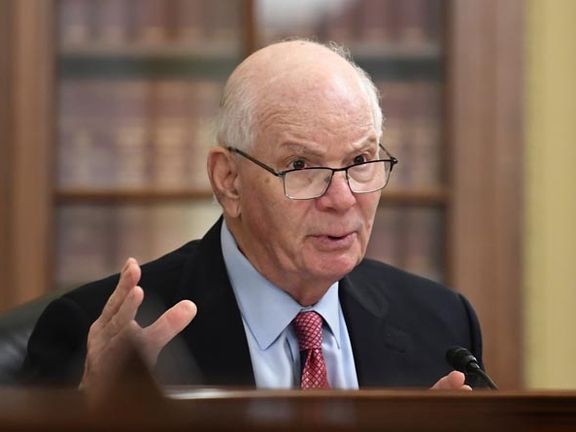
While the Islamic Republic is becoming more isolated in the international community, some US Democratic Senators say efforts should continue to revive the 2015 nuclear deal.
Senator Ben Cardin (D-MD) told Iran International’s Arash Alaei on Wednesday that the Biden administration should never officially walk away from the negotiations.
However, he added that "I was not happy with the original JCPOA. I was not happy with us leaving the JCPOA. I always supported a longer and stronger agreement, so I think this is a matter on which the US needs to be more in harmony with Europe.”
Talks initiated by the Biden Administration in April 2021 to return to the accord known as JCPOA faltered last September. Following this failure, protests that began in Iran were brutally suppressed by the government, which led to more isolation for the clerical regime.
Referring to State Department’s neither confirming nor denying recent meetings between US special envoy for Iran Robert Malley and Tehran's UN ambassador in New York, Cardin said such moves depend on strategic issues and the effectiveness of backchannel conversations.
Another Democrat, Senator Bob Casey of Pennsylvania said he believes “it’s not likely to reach an agreement anytime soon but I would hope that we continue to pursue that.” “We were in a better posture, if we had that agreement (the JCPOA) in place.”
Meanwhile, Republican Senator Rick Scott (R-FL) told our correspondent that "We should not be negotiating with Iran except to make sure they start giving liberty and freedom to their citizens and stop being a menace to the world.”
The United States and its European allies say that they are not focused on the nuclear talks with Iran because of Tehran’s human rights violations and its arms support for the Russian invasion of Ukraine.
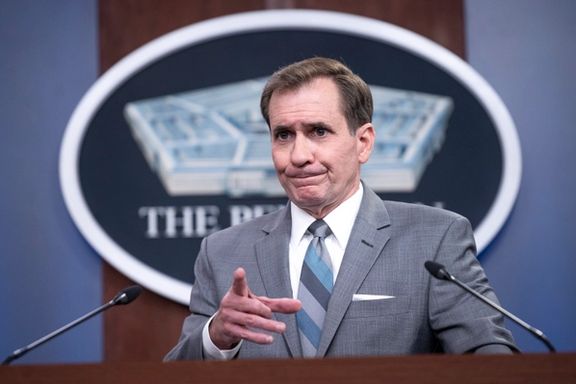
A top US national security official says Iran did not take the nuclear negotiations seriously and, instead, decided to brutalize its people and support Russia’s war in Ukraine.
National Security Council Strategic Communications Coordinator John Kirby made the comments during a press briefing on Friday, emphasizing that President Joe Biden will not allow the Islamic Republic of Iran to acquire nuclear weapons and "He's serious about it."
“But we also have to make sure that we have all the capabilities and resources available to us in the region and beyond to defend our national security interests. That’s what the President said. That’s what we’re focused on,” noted Kirby.
In recent months, US officials have repeatedly emphasized that due to the violent suppression of protests in Iran, reviving the JCPOA is not on their agenda, and the government has focused on supporting the Iranian people. Talks to revive the agreement reached a stalemate last year.
The US and its European allies have been imposing more sanctions on Iranian individuals and entities engaged in human rights violations and supplying arms to Russia.
Following the death of 22-year-old Kurdish girl Mahsa Amini in the custody of Tehran's morality police in September, Iranian cities have been the scene of unprecedented nationwide protests.
According to human rights sources, at least 520 people have been killed during these protests in the last four months, and dozens of children have been identified among the dead.
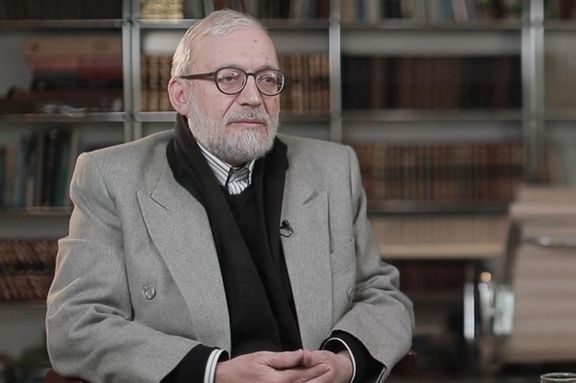
An Iranian hardliner, Mohammad-Javad Larijani from an influential family has said that the nuclear deal, JCPOA, “is dead but unfortunately not buried, and it smells.”
Larijani who is the brother of former parliament speaker Ali Larijani, an influential conservative, told the IRGC-affiliated Fars news agency that “the JCPOA is a crooked [instrument] and we should never pin hopes on it.”
Larijani, a former official with foreign relations portfolios, claimed that the 2015 nuclear accord was designed to “to bring down our nuclear capability to zero, but this is not going to happen.”
He blamed Iran’s so-called reformists for concluding the agreement, although without Supreme Leader Ali Khamenei’s consent no major decisions can be made in the Islamic Republic. He accused the reformists of blaming the current hardliner government for the failure to revive the deal, and said, “they are wrong, and I don’t understand how they have not grasped this process.”
“The strategy of the current government is a correct one, meaning that we should manage our affairs without the JCPOA…we should not allow our nuclear capability to reach zero, and thanks God it will not happen,” Larijani maintained. However, he added that Iran should continue talks.
He went on to argue that Iran needs nuclear energy for commerce and medicines, argument Iranian officials often make. However, Iran does not need a vast uranium enrichment infrastructure to have a peaceful, civilian nuclear program.
Talks since April 2021 to revive the JCPOA, abandoned by the US in 2018, have stalled and Iran is enriching uranium and is believed to have enough fissile material for up to four nuclear bombs.